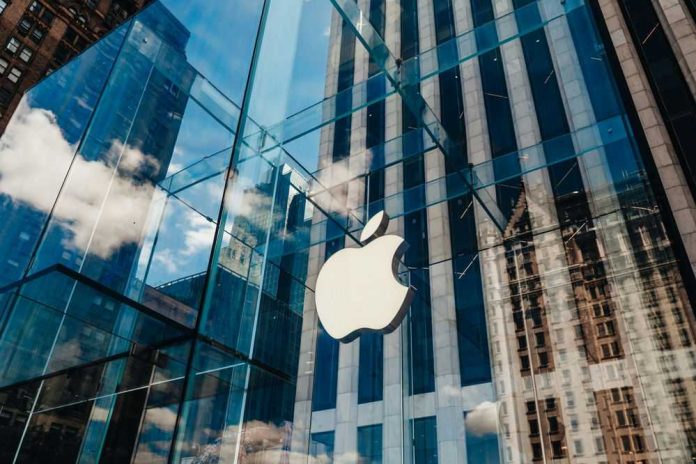
Apple just proved that even the world’s most powerful tech company will bend the knee when the Trump administration comes knocking with demands to silence digital tools protecting immigrant communities.
Story Snapshot
- Apple removed ICEBlock and similar ICE-tracking apps, after direct pressure from Attorney General Pam Bondi and DHS Secretary Kristi Noem
- The Trump administration cited officer safety risks following a deadly shooting at a Dallas ICE facility
- No court order was involved—Apple complied with informal government pressure alone
- Civil liberties groups warn this sets a dangerous precedent for government censorship of private platforms
- The app developer faces potential prosecution despite constitutional protections
When Big Tech Meets Bigger Government
The removal of ICEBlock represents a watershed moment in the ongoing battle between government authority and corporate independence. Apple’s swift compliance reveals how quickly even trillion-dollar companies cave when faced with federal pressure. The tech giant didn’t wait for subpoenas or court battles—they simply deleted the apps within hours of government contact, raising serious questions about who really controls the digital tools millions depend on daily.
The Dallas Shooting That Changed Everything
The deadly shooting at a Dallas ICE facility provided the Trump administration with the ammunition needed to target these tracking apps. Attorney General Pam Bondi and DHS Secretary Kristi Noem seized on the tragedy, arguing that real-time ICE agent location sharing directly endangered law enforcement lives. Their argument carries weight—when apps broadcast the precise locations of federal officers, the line between community safety and officer vulnerability becomes razor-thin.
Yet critics rightfully question whether this represents genuine safety concerns or convenient political theater. The timing feels orchestrated, coming at a moment when the administration needed justification for broader digital crackdowns on immigration-related tools.
ICEBlock Developer Faces Federal Crosshairs
Joshua Aaron, the creator of ICEBlock, now finds himself squarely in the government’s crosshairs. The Department of Justice and DHS have warned him that constitutional protections might not shield him from prosecution—a chilling threat that exposes the administration’s willingness to intimidate private citizens for creating legal software. Aaron’s app merely aggregated publicly reported information, yet federal agencies are treating him like a national security threat.
This aggressive posture reveals the administration’s strategy: make examples of developers to discourage others from creating similar tools. It’s effective intimidation wrapped in law enforcement rhetoric, designed to chill innovation in the digital civil rights space.
The Slippery Slope of Informal Censorship
What makes this case particularly troubling is the informal nature of the government pressure. Apple faced no legal mandate, no court order, no due process—just phone calls from powerful federal officials demanding compliance. This “jawboning” approach allows the government to circumvent constitutional protections by outsourcing censorship to private companies who fear regulatory retaliation.
Civil liberties advocates understand the precedent this sets. If the government can pressure Apple to remove immigration apps today, what stops them from targeting other controversial tools tomorrow? The mechanism of informal pressure, once established, becomes a versatile weapon against any digital platform or application that challenges government priorities.
Sources:
VisaVerge – Apple Removes ICE Tracking Apps Under Trump Administration Pressure
WebProNews – Apple Removes ICE Tracking Apps From Store Amid Trump Pressure and Censorship Debate
Channel News Asia – Apple Removes ICE Tracking Apps After Pressure Trump Administration
MacDailyNews – Apple’s App Store Removes ICE Tracking App After DOJ Raises Concerns












